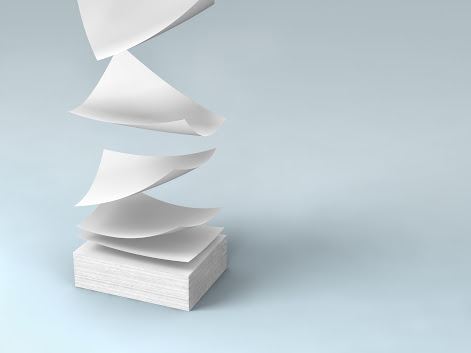Coated vs. Uncoated Paper Stock: Which is Best for Your Project?
Paper comes in all kinds of forms. Knowing the different variations of paper and when to use each will help you choose the right type for your print projects.
One major decision is choosing between coated or uncoated paper.
Coated
Coated paper typically receives a fine clay or polymer coating, which seals the paper, restricting ink absorption and reducing dot gain.
Dot gain makes the printed material look darker than intended because of ink absorption. All this gives your finished printed products a crisp, clean look.
Coated paper tends to be great for projects that include images and color, which means it's great for photographs, magazines, and catalogs.
One thing to note, however, is that coated paper tends to be harder to write on.
Below are a few of the subcategories of coated paper.
Gloss
A gloss coating is going to have a higher sheen and is lightweight. It also tends to be cheaper than other finishes while having vibrant colors.
Satin and Dull
Satin and dull finishes are between a gloss and matte finish, providing a nice balance.
Matte
Matte has a nonglossy finish to reduce glare and comes with extra opacity.
Opacity is the percentage of visible light that does not transmit through the paper, and a higher opacity means the paper is less see-through.
Matte tends to look a little more high-end and therefore comes with an extra cost.
Uncoated
Uncoated paper does not have a coating, creating a softer, warmer appearance.
For projects without a need for vibrant images, uncoated is the way to go. Without the coating, the ink will not be as crisp, and the colors won't be as accurate. Therefore, it's often used for projects that don't use vibrant pictures and colors.
It's better for projects with a lot of writing because the lack of glare makes it easier to read and can be easily written on, which is great if the recipient wants to take notes.
Uncoated paper is generally best for envelopes, letterheads, business cards, brochures, stationery, bookmarks, and booklets.
Uncoated paper comes in a variety of textures.
Smooth
As the name suggests, smooth paper is untextured. It's popular for commercial print jobs such as books, posters, and flyers because it's solid and flexible.
Laid
Laid paper has a ribbed texture. Because it's less common today, it can help your letterheads, envelopes, and business cards stand out. It was most common between the 12th and 19th centuries, giving it a vintage feel.
Linen
Linen paper, with its embossed, crosshatch finish, looks like a woven linen fabric. This high-end paper is excellent for business cards, greeting cards, and stationary.
Knowing the pros and cons of uncoated and coated paper and the different options will help your business choose the right paper for every print project. If you're looking for advice on what paper to choose for your next print job, contact us today!





No comments:
Post a Comment